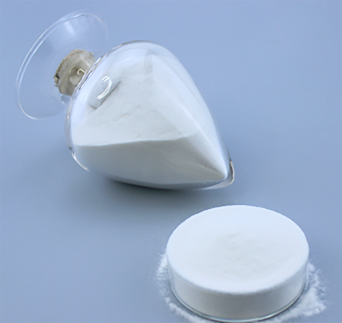
ное. . 02, 2024 23:13 Back to list
hpmc gel preparation
HPMC Gel Preparation A Comprehensive Guide
Hydroxypropyl methylcellulose (HPMC) is a versatile cellulose ether commonly used in various applications, including pharmaceuticals, food products, and cosmetic formulations. Its unique properties, such as gel-forming ability, biocompatibility, and thickening capabilities, make it a preferred choice for gel preparations. This article discusses the fundamental aspects of preparing HPMC gels, including the materials required, preparation steps, and key considerations.
Materials Required
1. HPMC Powder The primary ingredient for gel preparation. It comes in various grades, with different viscosity and substitution levels. The choice of HPMC grade will depend on the desired consistency and properties of the final gel. 2. Water The solvent used for dissolving HPMC. Distilled or deionized water is recommended to avoid impurities that could affect gel formation. 3. Additional Additives Depending on the intended application, various additives can be included. These may include preservatives, active pharmaceutical ingredients, colorants, or fragrances.
Preparation Steps
1. Calculate the HPMC Concentration Determine the desired concentration of HPMC in the final gel. Common concentrations range from 1% to 5%, depending on the application. For instance, a higher concentration may be preferred for a thicker gel.
2. Dissolve HPMC in Water - Measure the appropriate amount of HPMC powder and water based on your calculations. - Slowly sprinkle the HPMC powder into the water while stirring continuously to prevent clumping. It is essential to add HPMC gradually to ensure even dispersion and reduce the formation of lumps.
3. Hydration Phase Allow the mixture to hydrate. This may take several hours or overnight, depending on the specific grade of HPMC and the temperature of the water used. During this time, the HPMC molecules will swell and dissolve, forming a gel network.
hpmc gel preparation

4. Heating (Optional) For certain HPMC grades, gentle heating (around 60-70°C) can facilitate the dissolution process. However, excessive heat should be avoided as it may degrade the HPMC.
5. Incorporate Additives If additional ingredients are required, such as preservatives or active ingredients, incorporate them after the HPMC has fully dissolved. Stir well to ensure uniform distribution throughout the gel.
6. Adjust the pH (if necessary) Depending on the intended use, you may need to adjust the pH of the gel. This can be done using citric acid or sodium hydroxide while monitoring with a pH meter.
7. Cooling and Storage Once the gel reaches the desired consistency, allow it to cool if heated. Transfer it to sterilized containers for storage. It is important to keep the gels in a cool, dry place to maintain their integrity.
Key Considerations
- Viscosity Control The viscosity of the gel can be influenced by the concentration of HPMC. Always conduct preliminary tests to determine the optimal concentration for your specific application. - Stability Evaluate the stability of the gel over time to ensure that it maintains its desired consistency and efficacy. - Compatibility Before incorporating additives, assess their compatibility with HPMC, as some substances may affect gel formation or stability.
In conclusion, HPMC gel preparation is a straightforward process that allows for customization based on specific needs. By understanding the materials and following the steps accurately, effective and high-quality gels can be produced for various applications.
-
What is HPMC?
NewsJun.06,2025
-
Understanding Redispersible Powder: The Future of Construction Materials
NewsJun.06,2025
-
Understanding RDP Powder: The Ultimate Solution for Your Construction Needs
NewsJun.06,2025
-
Pure HPMC: The Ideal Solution for Modern Construction and Building Materials
NewsJun.06,2025
-
Methyl Hydroxyethyl Cellulose: A Versatile Chemical Compound
NewsJun.06,2025
-
Hydroxyethyl Cellulose Power: The Essential Chemical for Various Industries
NewsJun.06,2025







